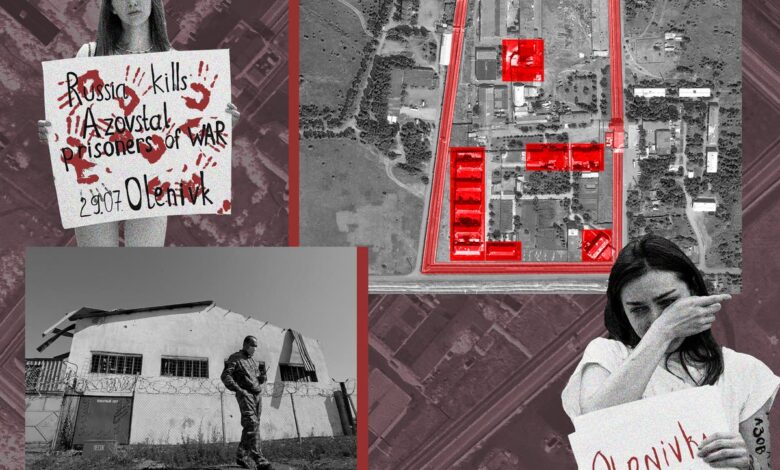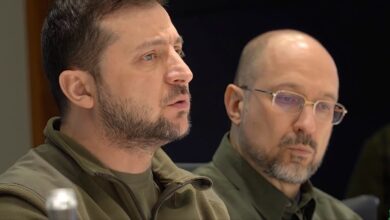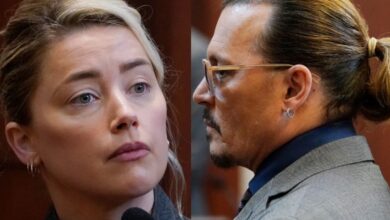Inside Olenivka, the Russian prison camp where Ukrainians vanish

In a field whipped hard by frost, separatist soldiers handed their three Ukrainian captives a shovel each and ordered them to dig their own graves.
The three men – all civilian humanitarian volunteers – had been stopped at a checkpoint while trying to rescue family members from the besieged city of Mariupol. The soldiers, from the Russian-backed Donetsk People’s Republic, took them blindfolded to a patch of fresh soil beside two neat crosses.
“They told us the guys buried there had also said they were volunteers but, when their mobiles were checked, they were ‘military’,” says Arkady, a 31-year-old professional climber, describing the start of his ordeal in March.
It would lead to him being disappeared for more than 100 days in what was then a little-known prison called Olenivka.
“They wouldn’t say what happened to the people buried there,” Arkady continues shakily. “They just kept repeating, ‘Now those two men are sleeping. Keep digging.’”
This was just a few weeks into Vladimir Putin’s invasion of Ukraine. Arkady, from Mariupol, says he and two friends had been attempting their second trip into the strategic coastal city to rescue relatives.
Stopped by soldiers, they were taken to an abandoned house where they were beaten, forced to sleep in a pit outside in sub-zero temperatures, starved, and for two days made to dig their own graves.
“They kept threatening to kill us; we didn’t know if they were going to go through with it. We just kept digging,” he says.
Finally, the men were spared execution and instead were hooded, handcuffed, beaten, and shuttled between several overcrowded, squalid detention centres.
Eventually they were interned in Olenivka, just south of the occupied city of Donetsk.
Among the thousands of male and female inmates held in the detention centre over the course of the conflict so far were the Ukrainian soldiers who in May surrendered to Russia after a stand-off at Mariupol’s Azovstal steel plant – including, say witnesses, British citizen John Harding.
The dilapidated, sprawling facility was unknown internationally until the morning of 29 July, when an explosion killed at least 50 Ukrainian prisoners of war; Russia and Ukraine have blamed the attack on each other.
Civilian internees say that, once they were captured, they had no direct communication with the outside world.
“My mother didn’t know anything for nearly a month,” Arkady, who was released a few weeks ago, tells The Independent. She found out only through someone else who had been released.
Oleksiy, head of an IT company before the war, was also arrested, separately, while trying to rescue civilians from Mariupol. He says he lost contact with his family “from day one”. “We were never charged with anything official,” he says. “We just vanished.”
Experts say the lack of shrapnel damage is not consistent with a missile strike
Russia has vehemently and repeatedly denied that its forces, or the separatist troops it backs, have violated international law in Ukraine. It has instead accused Kyiv of deliberately staging apparent war crimes to besmirch Moscow’s reputation and win Western support.
But a month-long investigation by The Independent has revealed evidence of possible violations of international law and potential war crimes, including torture, enforced disappearances, arbitrary detention and forced labour.
The Independent conducted more than a dozen interviews with recently released civilian detainees and with family members of those still believed to be held in Olenivka, as well as with activists held and tortured in detention centres in other southern cities, Ukrainian officials, and international and local rights groups that are monitoring the missing.
The testimonies also cast doubt on Moscow’s version of the events of 29 July: that Ukraine had rocketed its own PoWs in Olenivka to silence them about crimes Kyiv had committed.
Investigators examine bodies of Ukrainian military prisoners at Olenivka





